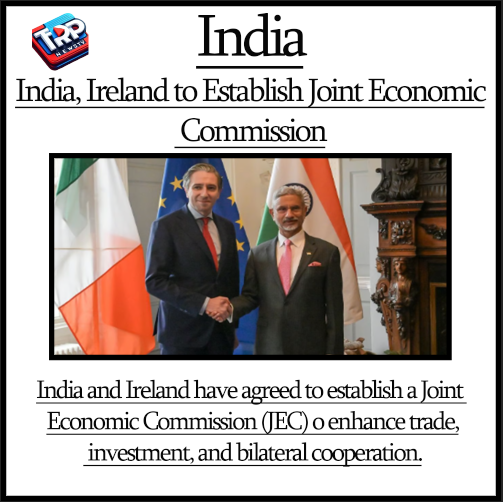
Colombia Reverses Decision on U.S. Deportation Flights After Trump’s Tariff Threat: What It Means for Bilateral Relations
In a surprising turn of events, Colombia has recently reversed its decision to accept deportation flights from the United States, a move that has stirred the diplomatic waters between the two countries. The shift came in response to a strong suggestion from former U.S. President Donald Trump that Colombia could face hefty tariffs on imports if it continued to cooperate with U.S. immigration policies. The situation has been further complicated by the U.S. government’s response, which included pausing sanctions against Colombia as a gesture of goodwill.
While the U.S.-Colombia relationship has always been relatively strong, this new development underscores the influence that trade and immigration policies have on international diplomacy. Let’s take a deeper look at what happened, why it matters, and what this could mean for the future of bilateral relations between the two nations.
The Backdrop: The Deportation Flights Issue
For years, Colombia had cooperated with the United States on the deportation of Colombian nationals who had been living illegally in the U.S. In 2021, Colombia even agreed to resume the deportation flights that were temporarily suspended due to the COVID-19 pandemic. This was seen as a crucial step in managing the issue of illegal immigration, a concern that has often been a point of tension between the two countries.
However, the situation began to shift when former President Trump, in a series of public statements, hinted that he might impose tariffs on Colombian goods if the country continued to accept deportation flights. Trump’s remarks were seen as a form of diplomatic pressure, leveraging the economic relationship between the two nations to achieve a political outcome.
The Colombian Response: A U-Turn on Deportation Flights
Faced with the potential for tariffs, which could harm Colombia’s economy, the Colombian government announced a reversal in its decision to accept deportation flights from the U.S. This move came as a surprise to many, especially considering that Colombia had long been a close ally of the U.S. in the region.
President Gustavo Petro, who had assumed office in Colombia in mid-2022, found himself navigating a complex political situation. Petro’s administration has taken a more progressive stance on issues like immigration and drug policy, which may have influenced the decision to reassess Colombia’s stance on deportation flights. Nevertheless, the added pressure from the U.S. government and Trump’s tariff threat likely played a pivotal role in Colombia’s decision to pause the deportation agreement.
The U.S. Response: Pausing Sanctions
In an attempt to ease tensions, the Biden administration responded by pausing certain sanctions on Colombia. This was seen as a strategic move to calm the situation and give both countries time to reassess their positions.
Sanctions have long been a tool used by the U.S. in its foreign policy arsenal, especially when dealing with countries whose policies are at odds with U.S. interests. In the case of Colombia, sanctions have been tied to issues such as drug trafficking and human rights concerns. However, with both countries now facing challenges—Colombia on the economic front and the U.S. on the diplomatic front—it appears that the Biden administration is seeking to avoid further escalation.
What This Means for U.S.-Colombia Relations
This sudden reversal in policy highlights the delicate balance that Colombia and the United States must maintain in their bilateral relationship. On one hand, Colombia relies heavily on trade with the U.S. as one of its largest economic partners. On the other hand, the country must also navigate domestic pressures and political dynamics, which can sometimes conflict with U.S. interests.
The suspension of deportation flights and the subsequent pause on sanctions could signal a shift toward a more cautious and calculated approach to U.S.-Colombia relations. Both sides appear to be signaling that they are open to negotiation, but the future of this relationship may depend on how both governments manage their respective national interests going forward.
The Role of Immigration and Tariffs in International Diplomacy
At the heart of this issue lies the broader debate on immigration and trade. The threat of tariffs has become an increasingly common tactic used by the U.S. to leverage its economic influence over other countries. In this case, it was used to pressure Colombia into changing its immigration policy. While this type of diplomatic maneuver can sometimes yield short-term results, it also risks long-term consequences, including souring relationships and fostering resentment.
In Colombia’s case, the tariff threat was seen as an unfair tool to force the country into compliance with U.S. policies. Colombia, which is already dealing with significant domestic challenges, including economic instability and internal conflicts, may have felt that accepting deportation flights would add undue strain to its resources. This diplomatic tug-of-war serves as a reminder of the complex interplay between economic pressures, immigration policy, and international diplomacy.
Moving Forward: What’s Next for U.S.-Colombia Diplomacy?
Looking ahead, it remains to be seen whether this diplomatic flare-up will lead to lasting changes in the U.S.-Colombia relationship. While both sides have paused further escalations, the underlying issues—immigration, trade, and political differences—are likely to persist.
The key to maintaining stable relations will likely involve continued dialogue between both countries, with a focus on balancing their respective priorities. For Colombia, this means managing its domestic challenges while maintaining strong trade relations with the U.S. For the United States, it involves finding a diplomatic approach that doesn’t undermine its foreign policy goals or alienate important allies.
Ultimately, this situation serves as a reminder that international relations are often a delicate balancing act, with each decision having far-reaching consequences for both nations involved. How Colombia and the U.S. navigate this issue will set the tone for future diplomatic interactions in the region.
Conclusion
Colombia’s decision to reverse its stance on U.S. deportation flights in response to Donald Trump’s tariff threat highlights the complex and often unpredictable nature of international diplomacy. While the U.S. has responded by pausing sanctions, the underlying issues surrounding immigration and trade will continue to shape the bilateral relationship moving forward. As both countries try to navigate these challenges, it will be crucial to watch how they balance economic, political, and social pressures in the months and years to come.





